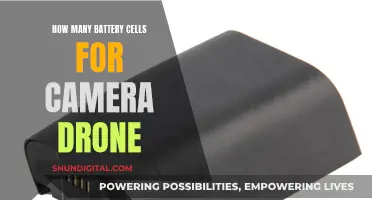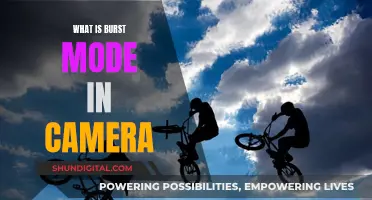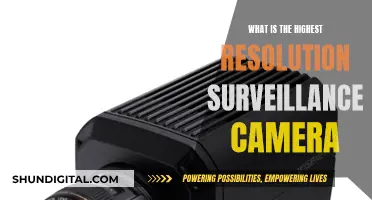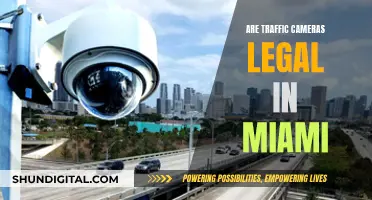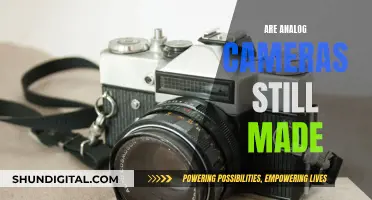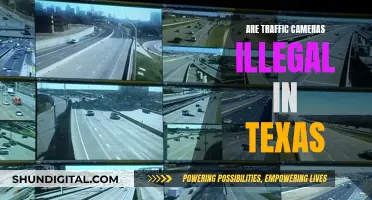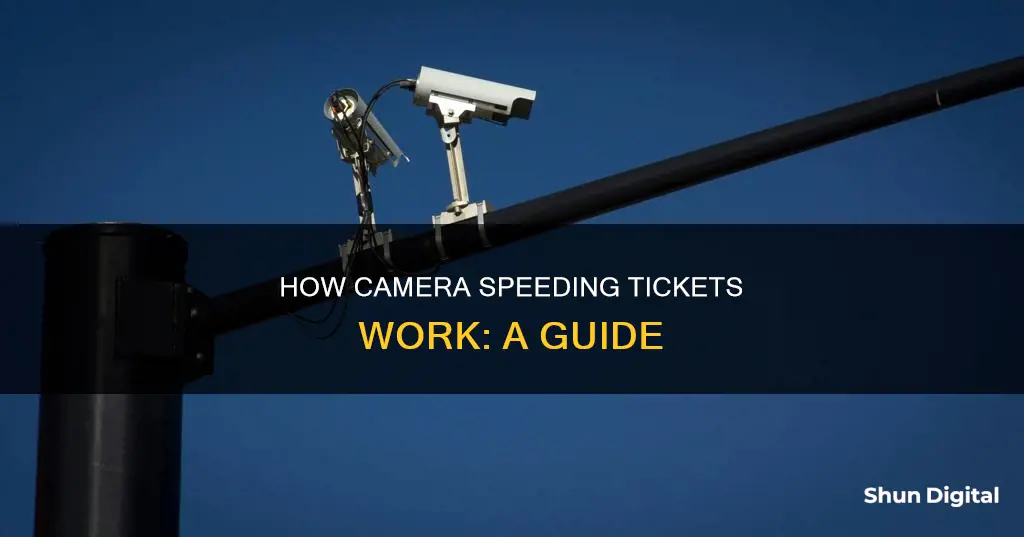
A camera speeding ticket is a citation issued to a motorist for exceeding the speed limit, captured by a motion-activated camera. These cameras are usually mounted on or near traffic signals in busy intersections and also capture images of license plates to identify the motorist. The use of these cameras has been a subject of controversy, with critics arguing that they increase accidents and are used by municipalities to boost revenue rather than improve road safety. However, supporters claim that they save lives and slow cars down in areas where it is challenging for police to conduct manual speed enforcement.
| Characteristics | Values |
|---|---|
| Purpose | To enforce speed limits |
| Technology | Radar or LIDAR-based speed detection |
| Placement | Highway work zones, school crossing zones, high-risk intersections, traffic signals in busy intersections |
| Operation | Mounted on or near traffic signals; photographs license plates to identify offenders |
| Notification | Offenders receive a citation or ticket in the mail |
| Fine | Up to $100 |
| Driving Record | May not affect the offender's driving record or insurance coverage |
| Evidence | Photographic evidence reviewed by a law enforcement official before issuing a citation |
| Signage | Signs posted within 1,000 feet of speed cameras to warn drivers |
What You'll Learn
- Camera speeding tickets are issued when a vehicle is found to be travelling at speeds 10+ mph over the limit
- Tickets are typically sent to the owner of the vehicle
- The owner may challenge the ticket in court if they weren't driving
- Tickets are mailed out after a law enforcement official reviews the evidence
- Camera speeding tickets are allowed in certain zones, including near schools and highway work sites

Camera speeding tickets are issued when a vehicle is found to be travelling at speeds 10+ mph over the limit
In the case of the state of Virginia, camera speeding tickets are issued when a vehicle is found to be travelling at speeds of at least 10 mph above the posted speed limit in zones monitored by photo speed monitoring devices. The operator of the vehicle is liable for a monetary civil penalty, which does not exceed $100. The law states that:
> Civil penalties collected under this section resulting from a summons issued by a local law-enforcement officer shall be paid to the locality in which such violation occurred. Civil penalties collected under this section resulting from a summons issued by a law-enforcement officer employed by the Department of State Police shall be paid into the Literary Fund.
The use of these cameras is controversial, with critics arguing that they are a scheme to let governments and private companies make money off unsuspecting drivers. There is also debate over whether the evidence collected by a machine can be verified and whether the violation must be served in person. However, most jurisdictions verify photo evidence with a traffic officer before issuing a citation.
Traffic Cameras in Garden Grove: Tickets Still Issued?
You may want to see also

Tickets are typically sent to the owner of the vehicle
Camera speeding tickets are issued when a camera captures a vehicle exceeding the speed limit. These cameras are usually mounted on or near traffic signals in busy intersections and also capture images of license plates to identify vehicles. The tickets are then typically sent to the owner of the vehicle.
In the case of camera speeding tickets, the owner of the vehicle is held responsible, even if they were not driving at the time of the offence. This is similar to how parking tickets work. However, if a vehicle has been reported stolen, any camera speeding tickets incurred during that time will be waived.
In some jurisdictions, a law enforcement official will review the photographic evidence before issuing a citation to ensure that a violation has indeed occurred. This is done to ensure due process and to verify the accuracy of the evidence, as the collection of evidence by a machine can be controversial. In the case of the City of Fairfax, Virginia, for example, multiple people, including city police officers, review the evidence before issuing citations to the registered owner of the vehicle.
The process of challenging a camera speeding ticket may vary depending on the location. In some cases, the registered owner of the vehicle may be able to sign a sworn affidavit to nullify the citation if they were not the driver at the time of the violation. However, they may be required to provide the name and address of the person who was driving, which can be a point of contention as it forces the vehicle owner to prove their innocence.
The Evolution of Rolleiflex Cameras: Past, Present, and Future
You may want to see also

The owner may challenge the ticket in court if they weren't driving
A camera speeding ticket is a citation issued to the owner of a vehicle that has been caught on camera exceeding the speed limit. The ticket will include information about the violation, instructions on how to pay the fine, and options to contest the ticket. If you weren't driving the vehicle when the ticket was issued, you may choose to challenge the ticket in court. Here are some steps you can take to dispute a camera speeding ticket:
Examine the Ticket
Check the date, time, location, and other details of the ticket. Since camera speeding tickets are typically sent to the owner of the vehicle, verify that you were indeed the one driving the car at the time of the violation. If someone else was driving your car, you may not be held liable in some states. Understand the specific laws in your state regarding liability for camera speeding tickets.
Plead Not Guilty
If you decide to dispute the ticket, you must plead not guilty by the specified deadline, usually within 30 days of receiving the citation. You may be able to plead by mail, online, or in person, depending on the jurisdiction. Keep in mind that paying the fine is often considered an admission of guilt.
Gather Evidence
Collect evidence to support your case. This may include photographs of the area where the violation occurred, maintenance records of the speed camera, and statements from passengers or witnesses. You can also request documentation from the local police department or law enforcement agency responsible for the camera, including photos, camera maintenance records, and traffic light or speed monitoring system records.
Challenge the Evidence
You can challenge the accuracy and admissibility of the photographic evidence in court. Argue that the photos are unclear or do not show you driving the vehicle. Additionally, you can dispute the authenticity of the photographs by requesting maintenance and calibration records of the camera to determine if it was functioning correctly.
Assert Your Rights
Assert your right to confront witnesses and cross-examine them. In some cases, you may object to the use of photographs as hearsay, especially if no one from the company that maintains the camera is present to testify. You can also raise other possible defenses, such as the absence or incorrect placement of warning signs for cameras or speeding necessities due to emergencies.
Attend the Hearing
Present your case at the scheduled hearing. Dress professionally, be respectful to the judge and courthouse staff, and provide copies of any evidence you intend to use in your defense. Listen to the prosecutor's arguments and make notes on points you want to address.
Remember that laws and procedures may vary by state and jurisdiction, so it is essential to understand the specific rules that apply to your case. Consulting with a traffic attorney can provide additional guidance and support throughout the process.
Charging the TG-4: Battery Power for Your Olympus Camera
You may want to see also

Tickets are mailed out after a law enforcement official reviews the evidence
In the US, speeding cameras are usually mounted on or near traffic signals in busy intersections. They use motion-activated technology to photograph motorists who exceed the speed limit, as well as their license plates, in order to identify and then penalise the offender.
In the interest of due process, a law enforcement official typically reviews the photographic evidence to make sure a violation has occurred before a citation is sent. This is important as much of the controversy related to due process has to do with how the evidence of speeding is verified, since it is collected by a machine, and how the violation is served.
In the case of mailed-out tickets, the defendant must have the chance to acknowledge receipt of the citation or request personal service. Failure to respond to a mailed photo enforcement ticket typically results in a default guilty judgment against the offender.
In Fairfax, Virginia, for example, multiple people, including city police officers, review evidence before citations are issued to the registered owner of the vehicle. The vehicle's registered owner then receives a notice of violation and a secure PIN number to access the citation online.
Olympus Cameras: High-Res Mode Options Explored
You may want to see also

Camera speeding tickets are allowed in certain zones, including near schools and highway work sites
Camera speeding tickets are a controversial topic, with critics arguing that they increase accidents and are more about revenue than safety. Despite this, they are permitted in certain zones in several states, including near schools and highway work sites.
School Zones
School zones are a common area where camera speeding tickets are allowed. States that permit the use of cameras in these zones include:
- Arkansas
- Indiana
- New York
- Rhode Island
- Virginia
Highway Work Zones
Highway work zones are another area where camera speeding tickets may be issued. States that allow the use of cameras in these zones include:
- Arkansas
- Indiana
- Pennsylvania
- Virginia
Other Zones
In addition to school and highway work zones, there are other specific zones where camera speeding tickets are permitted in certain states. For example:
- California allows speed camera programs in some cities.
- Arizona permits the use of cameras to enforce speed limits as long as it complies with state standards.
- Delaware has a five-year trial period that permits speeding cameras in specific jurisdictions.
- The District of Columbia permits cameras for speed enforcement.
Understanding Dual File Formats in Photography
You may want to see also
Frequently asked questions
A camera speeding ticket is a citation issued to a driver for exceeding the speed limit, captured by a camera. These are usually placed in areas where it is difficult for police to pull drivers over, such as near schools and highway work zones.
Cameras are typically mounted on or near traffic signals in busy intersections and photograph motorists who exceed the speed limit. They also capture images of license plates to identify and then send a citation to the offender.
If you receive a camera speeding ticket, you will typically be notified by mail and required to pay a fine. In some cases, you may be able to challenge the ticket in court, especially if you were not the person driving the vehicle when the violation occurred.


